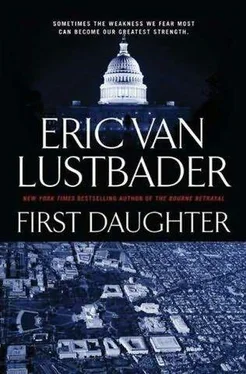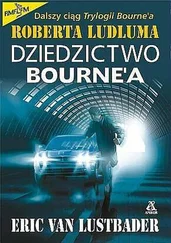With one last squeeze, he let go of her hands. "Now you know me. I haven't said any of this to another living human being."
He stood up; she felt his presence receding. She wanted to cry out for him to stay, but she knew she mustn't. She'd learned her lesson.
"I want to trust you, Alli. That's my most fervent wish. But you've still got to prove yourself worthy of trust." His voice was growing fainter. "I believe you can do it. I have faith in you."
JACK NEVER went home again. But he is afraid that his father will try to find him, that he will use the authorities to drag Jack back to the room with the stoplight blinking outside the window, hostage to the creaks and groans of his father's nighttime footsteps. He knows he needs to disappear.
Where do you go when you disappear off the grid the authorities have constructed? Back in the day, you joined the army; before that, if you had a romantic soul, it was the Foreign Legion. But those gilded days have been long drained to black-and-white. Off the grid for Jack means staying with Gus.
Gus owns the Hi-Line, a pawnshop on Kansas Avenue, where the sidewalk is sticky with spent body fluids, and at any time of the year a dank and gritty wind rattles folding gates on dilapidated storefronts.
Jack shows up outside the gated storefront at 7 A.M. the day after the incident at the All Around Town bakery and waits there until Gus arrives.
Gus shows no surprise whatsoever. "Huh, white boy develop a taste for grits." He unlocks the gate, rolls it up. "I mightta known."
"I'm not going home." Jack follows Gus into the Hi-Line, a long, narrow space with glass cases to the right, a wall of mirror to the left. It's impossible to do anything in the Hi-Line, even pick your nose, without Gus seeing it. "I want to work for you."
Gus turns on the fluorescent lights, then the air conditioner, which begins to rumble like an arthritic pensioner.
"Well, I mightta said no, despite what Reverend Taske tol' me." More lights come on at the rear of the store. "Huh, he thinks he knows everything 'cause he's got a direct pipeline t'God." Now the lights in the glass cases flicker once before illuminating the pawned goods. "I made some calls after I dropped you off yesterday. Now I gotta better line on Cyril."
Gus steps behind the line of counters, checks the till, puts in a stack of bills. He looks up, an expression of mild surprise on his face. "My name's Augustus Turlington the Third, no lie. My name alone would get me into any country club in America. Until they see my black-ass face, that is." He grunts. "So what a you doin on the customer's side a the counter, anyways? You never gonna learn the business from there."
THE HI–LINE is habituated by tattooed bail-bondsmen, furtive pornographers, rough-and-tumble Colombians, burly pimps, sallow-faced pushers, and beat cops on the take preceded into the fluorescent-lit shop by their bellies.
At first, Jack's job is simply to follow Gus's orders, or so it seems to his clients. But what Jack is really doing is observing them, in the way only he can, absorbing the nature of the up-front business deals.
"I want you familiar with what I do here," Gus says that first morning. "I want you familiar with the folks who run in an' outta here on a reg'lar basis, got me?"
GUS LIVES in a large house at the end of Westmoreland Avenue, just over the Maryland border. Improbably, it's surrounded by trees and thick shrubs. Jack has his own room on the top floor. When he looks out his windows, he imagines he's in a tree house, all leafy bower, safely green. There is a bird's nest dotted with bits of fluff and droppings in the crook of a branch, as empty now as it was full in the spring. In the mornings, the green bower is spangled gold; at night, it's frosted by a silvery glitter. Except for the birds and, in August, the cicadas, it's quiet.
Sometimes, though, Jack hears music. There is a part of him that quails deep inside, but it's the music itself-slow, sad, resigned even in its seething anger that draws him. Gradually, he conquers his inner fear enough to creep downstairs. Now he hears the male voice, deep, richer, more burnished than James Brown's. He sits down on the bottom riser, arms clasped around his bony knees, rocking slightly to the rhythm. For an hour or more, he is inundated by the river of sorrow, soaking up sounds that seep into his bones, that in their sadness seem to lift him up on a golden chariot, transport him over the gummy rooftops, the blinking traffic lights, the blaring horns, screeching brakes, the drunken shouts, into a realm of pure bliss.
After the last notes die away, Jack climbs back up the stairs, crawls into bed, and falls into a deep, dreamless sleep.
Every night he hears the music, the ritual is the same: the soft creeping down the stairs, sitting alone, but not alone, connected to an invisible world by the music, by the lyrics, by the voices of men who've seen things he can't even imagine.
WEEKENDS JACK is being taught the ways of God by Reverend Taske. His weekdays are spent at the Hi-Line observing, cataloging, and collating the sad parade of used bric-a-brac that down-at-the-heels customers bring in for Gus to evaluate and, if he deems them desirable, shell out meager cash payment. Most never return for their pawned goods, Jack learns soon enough, though they may be dear to them in ways no one else understands. Every month Gus holds an auction to sell what's been there for a half year, the term of the Hi-Line agreement. Always there are several treasures among the old guitars, Timex watches, cameos, and gold lockets. He makes money on these transactions, to be sure, though after less than a week on the job, Jack is quite certain his living is made in the back room.
During one such auction, Jack comes across a box of comics. Excited, he begins to paw through them, until he realizes that these are his comics. His father must've come in one weekend while he was with Reverend Taske, pawned them. At once, Jack knows that his father never had any intention of coming back for them. A terrible sense of freedom overwhelms him, a sorrow and a joy commingled precisely like that curious emotion that draws him to the bluesy music Gus plays at night.
For a moment, he contemplates asking Gus to take the cost of the comics out of his salary. Then he opens one, begins to read it. Almost immediately, he puts it aside, opens another, then another and another. He puts them all aside. Then he takes the box, puts it on the auction counter to be sold.
It's only when he looks up that he sees that Gus has been watching him all along.
ONE MORNING about a week after the auction, there's a present waiting for him when he comes down for breakfast.
He stands staring at the large package resting on the kitchen table. Gus, in a chef's apron, his fingers white with flour, says, "Well, go on, kid, open it."
"It's not my birthday."
Gus expertly pours four circles of batter into a smoking cast-iron skillet. "You don't want me t'have t'give it to someone else, do you?"
Jack feels himself being impelled by Gus's words. His fingers tremble as they rip open the paper. Inside is a square box with a grille on one side. He opens the top: it's a record player. Inside are three albums, one by Muddy Waters, one by Howlin' Wolf, one by Fats Domino.
Gus, flipping corncakes, says, "Life without blues music, now that's a sin. Blues tells all kinds o' stories, the history of the people composed it."
He slides a plate of corncakes onto the table. "Eat yo' breakfast now. Tonight we'll listen to these records together. No sense you sittin' all by yo'self on them hard stairs."
AFTER SIX weeks, Gus decides Jack is ready to observe the backroom deals. The back room is a frigid twelve-by-twelve bunker outfitted with a sofa and two La-Z-Boy easy chairs, between which rests a sideboard on which sits an array of liquor bottles, old-fashioned and highball glasses of sparkling cut crystal. A girl comes in once a day to clean, dust, and vacuum. Gus is extremely particular about the environment in which his deals get hammered out.
Читать дальше












